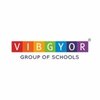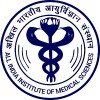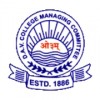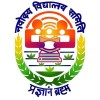Filter interviews by
Kendriya Vidyalaya Sangathan Interview Questions and Answers for Experienced
20 Interview questions
Coin metals and alloys resist oxidation due to their composition and protective layers formed on their surfaces.
Many coins are made from copper, nickel, or zinc, which have good corrosion resistance.
Alloys like stainless steel contain chromium, which forms a protective oxide layer.
Gold and silver coins resist oxidation due to their noble nature, being less reactive.
The presence of alloying elements can enhance res...
Crystal defects are irregularities in the crystal lattice that can affect the density and properties of materials.
Crystal defects can be classified into point defects, line defects, and surface defects.
Point defects include vacancies (missing atoms) and interstitials (extra atoms in the lattice).
Vacancies decrease density as they reduce the number of atoms in the crystal structure.
Interstitials can increase densit...
Absolutely, I am eager to engage with students and enhance their learning experience in chemistry.
I believe in hands-on learning; for example, conducting experiments to illustrate chemical reactions.
I can provide real-world applications of chemistry, such as discussing the role of chemistry in pharmaceuticals.
I am prepared to adapt my teaching methods to cater to different learning styles, ensuring all students gr...
Absolutely, I am enthusiastic about the opportunity to work across India and contribute to diverse educational environments.
I believe that exposure to different regions enhances teaching methods and research opportunities.
For example, working in a rural area may provide unique challenges that can foster innovative solutions.
I am adaptable and open to collaborating with various institutions, which can lead to enric...
I will use a variety of hands-on activities, games, and worksheets to teach missing numbers in a fun and engaging way.
Use number lines to help students visualize the sequence of numbers and identify missing numbers.
Play games like 'Missing Number Bingo' or 'Fill in the Missing Number' to make learning interactive.
Provide worksheets with number sequences for students to practice identifying missing numbers independ...
NEP 2020 is the New Education Policy introduced by the Government of India to revamp the education system.
NEP 2020 aims to make education more holistic, flexible, multidisciplinary, and aligned to the needs of the 21st century.
It focuses on promoting critical thinking, creativity, and experiential learning.
NEP 2020 proposes restructuring of school curriculum and pedagogy to integrate vocational education from Clas...
The teaching methodology that can be used for quick revision in the classroom is the use of mnemonic devices.
Mnemonic devices help students remember information by associating it with familiar and easy-to-remember cues.
They can be in the form of acronyms, rhymes, songs, or visual aids.
For example, to remember the order of operations in mathematics (PEMDAS), students can use the mnemonic 'Please Excuse My Dear Aunt...
Motivating students for improving Science application involves creating a stimulating learning environment and providing real-world examples.
Create a stimulating learning environment by incorporating hands-on experiments and interactive activities.
Provide real-world examples to demonstrate the practical applications of scientific concepts.
Encourage students to ask questions and explore their own interests within t...
Yes, Chemistry practicals are important from 6th class onwards.
Chemistry practicals help students understand concepts through hands-on experiments.
Practicals enhance critical thinking and problem-solving skills.
They provide a practical application of theoretical knowledge.
Practicals develop laboratory skills and techniques.
They promote teamwork and collaboration.
Practicals make learning enjoyable and memorable.
Exa...
The major difference between the new National Education Policy (NEP) and old NEPs is the focus on holistic and multidisciplinary education.
New NEP emphasizes on holistic development of students, including skills like critical thinking, creativity, and problem-solving.
Old NEPs focused more on rote learning and exam-based education.
New NEP promotes a multidisciplinary approach, allowing students to choose a diverse ...
Kendriya Vidyalaya Sangathan Interview Experiences for Experienced
24 interviews found
I appeared for an interview in Feb 2025, where I was asked the following questions.
- Q1. Why you want to join KVS and Introduce yourself .
- Q2. When you think to join Educational industry?
- Q3. Explain inductive effect and mesomeric effect .why inductive effect produce during bonding bonding?
- Q4. What do you understand by crystal defects and how they change density of crystal?
- Ans.
Crystal defects are irregularities in the crystal lattice that can affect the density and properties of materials.
Crystal defects can be classified into point defects, line defects, and surface defects.
Point defects include vacancies (missing atoms) and interstitials (extra atoms in the lattice).
Vacancies decrease density as they reduce the number of atoms in the crystal structure.
Interstitials can increase density if ...
- Q5. Why coin metal and alloy haven't undergo oxidation easily ?
- Ans.
Coin metals and alloys resist oxidation due to their composition and protective layers formed on their surfaces.
Many coins are made from copper, nickel, or zinc, which have good corrosion resistance.
Alloys like stainless steel contain chromium, which forms a protective oxide layer.
Gold and silver coins resist oxidation due to their noble nature, being less reactive.
The presence of alloying elements can enhance resistan...
- Q6. Which vitamin is necessarily take daily in food?
I appeared for an interview in Apr 2025, where I was asked the following questions.
- Q1. Why are you ready to join KVS.
- Ans.
I am eager to join KVS to contribute to quality education and holistic development in a dynamic environment.
Commitment to Quality Education: KVS is known for its emphasis on quality education, and I am passionate about fostering an enriching learning environment.
Holistic Development: I believe in nurturing not just academic excellence but also character building, which aligns with KVS's vision.
Innovative Teaching Metho...
- Q2. Are you ready to go to work all over India.
- Q3. Are you ready to submit 100%CBSE Board result?
- Ans.
Achieving a 100% CBSE Board result requires strategic planning, dedicated teaching, and continuous assessment of student performance.
Implement a robust curriculum that aligns with CBSE guidelines.
Conduct regular assessments to identify and address student weaknesses.
Provide personalized support and tutoring for struggling students.
Encourage a positive learning environment that fosters student engagement.
Utilize technol...
(1 Question)
- Q1. Tell me about yourself
(4 Questions)
- Q1. Why did you prefer KVS than DAV schools?
- Q2. How do you motivate students for improving Science application part?
- Ans.
Motivating students for improving Science application involves creating a stimulating learning environment and providing real-world examples.
Create a stimulating learning environment by incorporating hands-on experiments and interactive activities.
Provide real-world examples to demonstrate the practical applications of scientific concepts.
Encourage students to ask questions and explore their own interests within the su...
- Q3. Which teaching methodology improvise in classroom for quick revision?
- Ans.
The teaching methodology that can be used for quick revision in the classroom is the use of mnemonic devices.
Mnemonic devices help students remember information by associating it with familiar and easy-to-remember cues.
They can be in the form of acronyms, rhymes, songs, or visual aids.
For example, to remember the order of operations in mathematics (PEMDAS), students can use the mnemonic 'Please Excuse My Dear Aunt Sall...
- Q4. Do you think Chemistry practicals more important from 6th class on wards?
- Ans.
Yes, Chemistry practicals are important from 6th class onwards.
Chemistry practicals help students understand concepts through hands-on experiments.
Practicals enhance critical thinking and problem-solving skills.
They provide a practical application of theoretical knowledge.
Practicals develop laboratory skills and techniques.
They promote teamwork and collaboration.
Practicals make learning enjoyable and memorable.
Examples...
I appeared for an interview in Jul 2024.
(2 Questions)
- Q1. Test on my typing speed
- Q2. Test on MS office
More than teaching for different ideas
(2 Questions)
- Q1. Computer skills
- Q2. How do interesting teaching leave?

Teaching Aptitude, Syllabus based Knowledge, General studies, basics of Computer knowledge, elementary mathematics.
(1 Question)
- Q1. Subject based, Problem situation and Teaching Aptitude.
I applied via Campus Placement

(3 Questions)
- Q1. Introduce yourself. .
- Q2. Some questions related to counselling.
- Q3. Situation based questions
Interview Preparation Tips
I applied via Walk-in and was interviewed before Oct 2022. There were 2 interview rounds.

(5 Questions)
- Q1. Why do want to join kv? You have done masters xould you lI'lle to trach primary children?
- Q2. Test of hondi proefficiency
- Ans.
The test of Hindi proficiency assesses the candidate's ability to understand and communicate in Hindi.
Demonstrate fluency in speaking, reading, and writing Hindi
Show understanding of Hindi grammar and vocabulary
Provide examples of past experiences using Hindi in teaching or communication
- Q3. Do you know NEP 2020?
- Ans.
Yes, NEP 2020 refers to the New Education Policy 2020 introduced by the Government of India.
NEP 2020 aims to bring major reforms in the education system of India.
It focuses on making education more holistic, flexible, multidisciplinary, and aligned to the needs of the 21st century.
NEP 2020 emphasizes on early childhood care and education, foundational literacy and numeracy, and vocational education.
It also proposes cha...
- Q4. On which date was NEP 2020 announced?
- Ans.
NEP 2020 was announced on July 29, 2020.
NEP 2020 was announced on July 29, 2020.
The National Education Policy (NEP) 2020 was approved by the Union Cabinet of India on July 29, 2020.
NEP 2020 aims to bring major reforms in the education system of India.
- Q5. Major difference between new NEP and old NEPs
- Ans.
The major difference between the new National Education Policy (NEP) and old NEPs is the focus on holistic and multidisciplinary education.
New NEP emphasizes on holistic development of students, including skills like critical thinking, creativity, and problem-solving.
Old NEPs focused more on rote learning and exam-based education.
New NEP promotes a multidisciplinary approach, allowing students to choose a diverse range...
Interview Preparation Tips
I applied via Company Website and was interviewed in Sep 2022. There were 2 interview rounds.

(6 Questions)
- Q1. Introduce Yourself in short
- Ans.
I am a computer instructor with expertise in teaching various programming languages and computer skills.
Experienced computer instructor
Proficient in teaching programming languages
Skilled in imparting computer skills
Strong knowledge of software and hardware
Effective communication and interpersonal skills
- Q2. Why you have left your previous job
- Ans.
I left my previous job to pursue new opportunities and challenges in the field of computer instruction.
Seeking new opportunities and challenges
Desire for professional growth
Change in career focus
Better alignment with personal goals and values
- Q3. Can you handle students
- Ans.
Yes, I can handle students effectively by creating a positive learning environment and adapting my teaching methods to their individual needs.
I have experience working with students of different ages and backgrounds
I am patient and understanding, able to explain complex concepts in a simple manner
I use various teaching techniques to cater to different learning styles
I establish clear expectations and provide constructi...
- Q4. Basic programming related questions
- Q5. Do you know basic hardware and networking
- Ans.
Yes, I have knowledge of basic hardware and networking.
I am familiar with computer hardware components such as CPUs, RAM, hard drives, and motherboards.
I understand the basics of networking including IP addresses, routers, switches, and protocols like TCP/IP.
I have experience setting up and troubleshooting home networks and connecting devices.
I am proficient in configuring and troubleshooting common networking issues l...
- Q6. English fluency test
Interview Preparation Tips
- C language
- Python
- Data Structures
- Networking
- Operating Systems
Skills evaluated in this interview
Top trending discussions






Kendriya Vidyalaya Sangathan Interview FAQs
The duration of Kendriya Vidyalaya Sangathan interview process can vary, but typically it takes about less than 2 weeks to complete.
Tell us how to improve this page.
Kendriya Vidyalaya Sangathan Interviews By Designations
- Kendriya Vidyalaya Sangathan Primary Teacher Interview Questions
- Kendriya Vidyalaya Sangathan Computer Instructor Interview Questions
- Kendriya Vidyalaya Sangathan PGT Teacher Interview Questions
- Kendriya Vidyalaya Sangathan Teacher Interview Questions
- Kendriya Vidyalaya Sangathan PGT Maths Teacher Interview Questions
- Kendriya Vidyalaya Sangathan TGT Science Teacher Interview Questions
- Kendriya Vidyalaya Sangathan Post Graduate Teacher Interview Questions
- Kendriya Vidyalaya Sangathan School Teacher Interview Questions
- Show more
Interview Questions for Popular Designations
Overall Interview Experience Rating
based on 14 interview experiences
Difficulty level
Duration
Interview Questions from Similar Companies
Kendriya Vidyalaya Sangathan Reviews and Ratings
based on 890 reviews
Rating in categories
|
Teacher
140
salaries
| ₹1 L/yr - ₹8 L/yr |
|
Primary Teacher
109
salaries
| ₹1 L/yr - ₹7 L/yr |
|
Computer Instructor
77
salaries
| ₹1.6 L/yr - ₹4 L/yr |
|
PRT Teacher
62
salaries
| ₹2 L/yr - ₹3.6 L/yr |
|
Computer Teacher
52
salaries
| ₹1.7 L/yr - ₹4.1 L/yr |

Aakash Educational Services

VIBGYOR Group of Schools

AIIMS

ALLEN Career Institute
- Home >
- Interviews >
- Kendriya Vidyalaya Sangathan Interview Questions >
- Kendriya Vidyalaya Sangathan Interview Questions for Experienced













